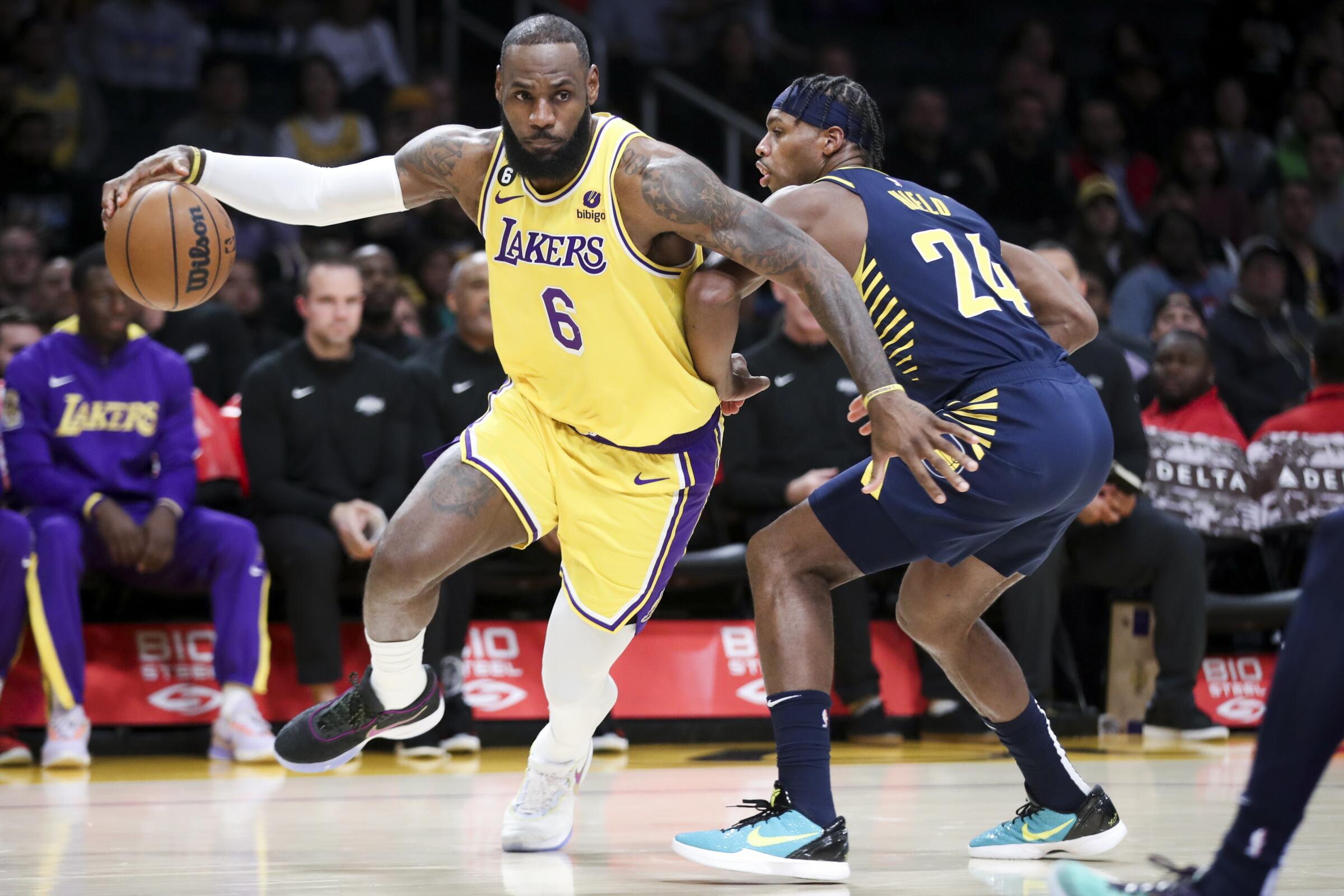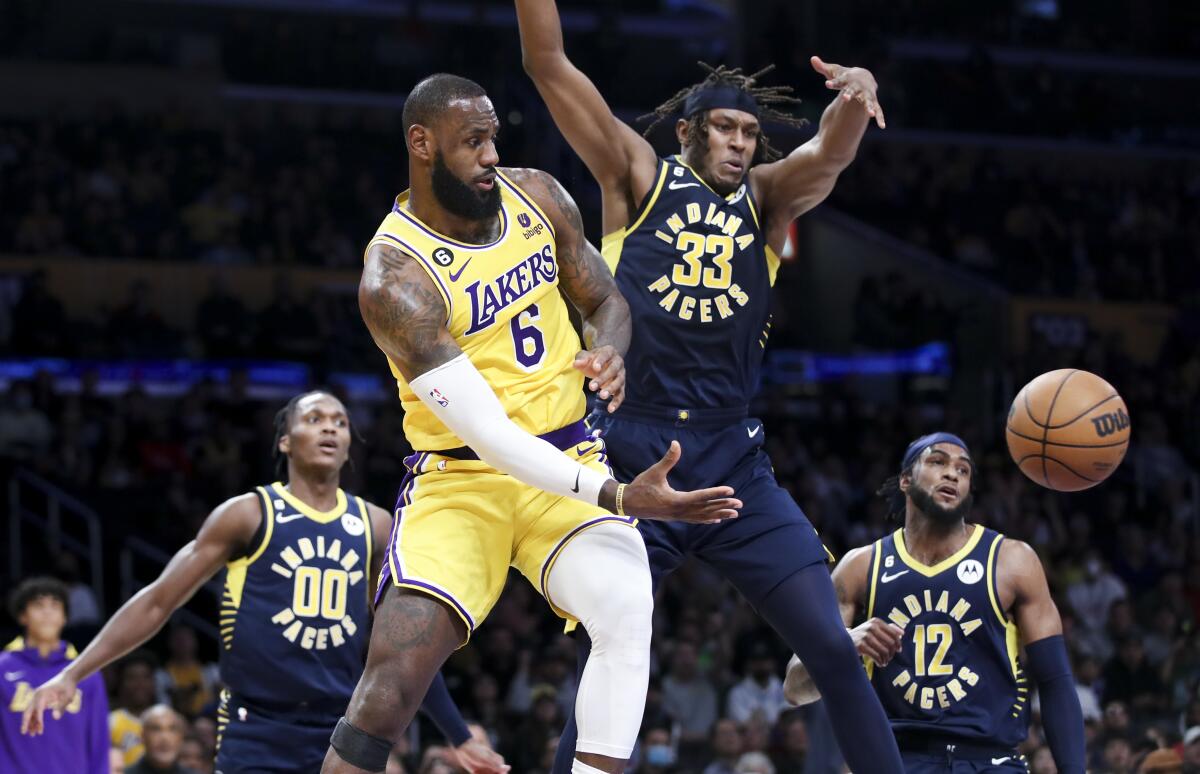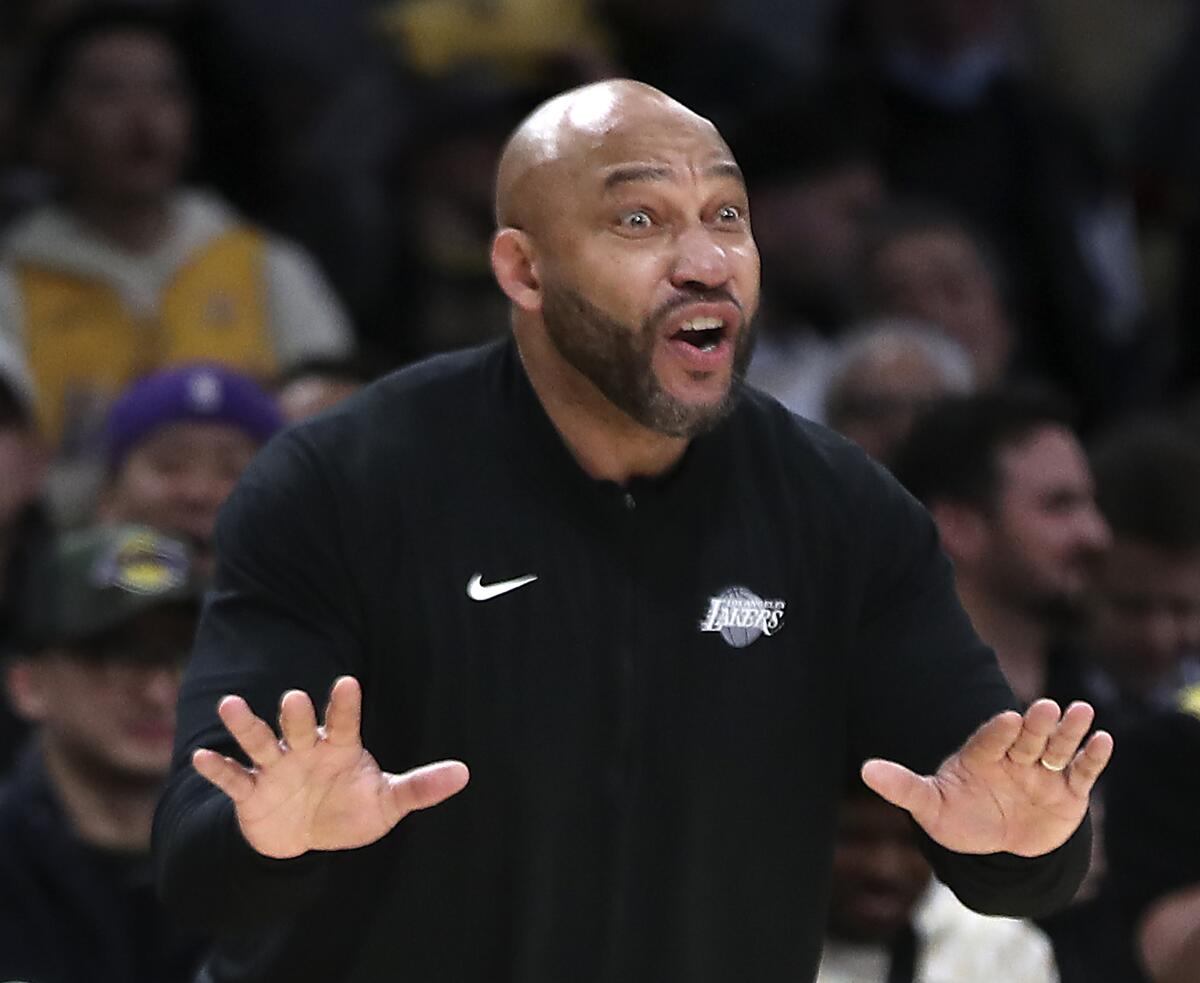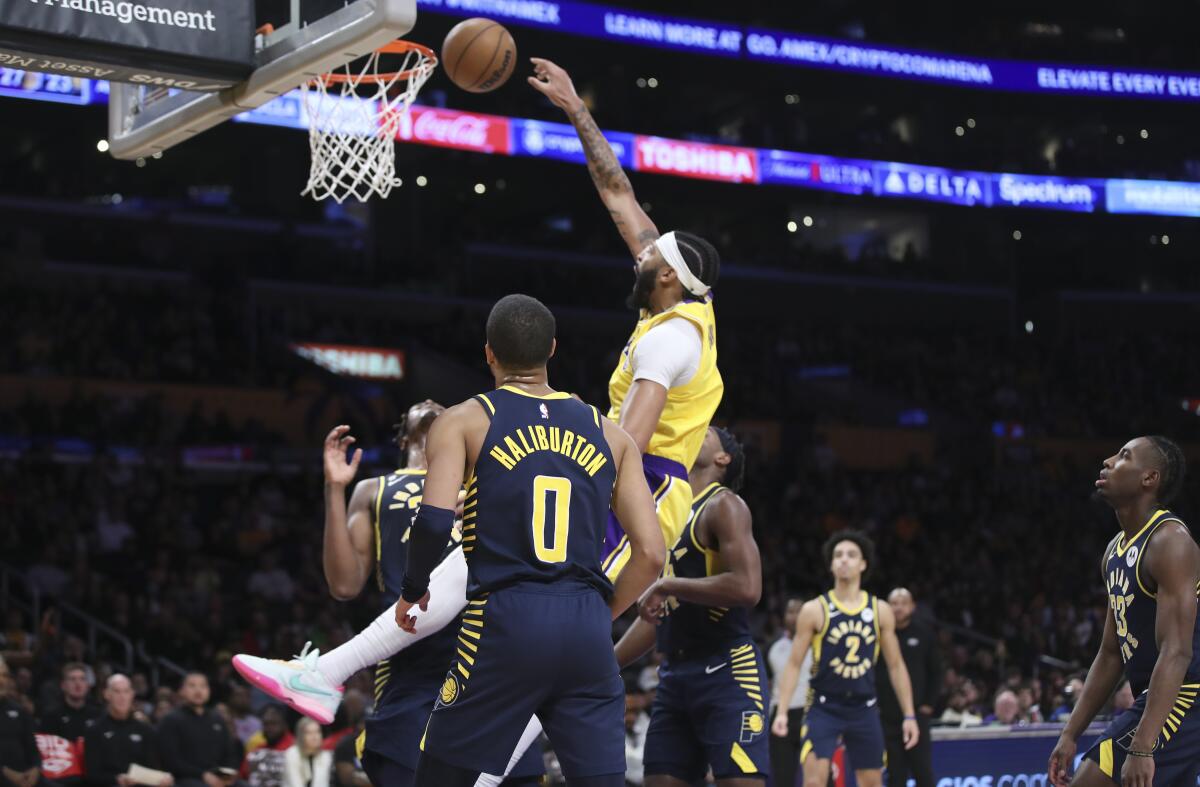Newsletter
All things Lakers, all the time.
Get all the Lakers news you need in Dan Woike's weekly newsletter.
You may occasionally receive promotional content from the Los Angeles Times.

Everything that is wrong with the Los Angeles Lakers unfolded in the final 10 minutes Monday of a one-point loss to the Indiana Pacers, the massive issues the team needs to resolve all coming together against a team many considered would be playing for the No. 1 pick.
“Everything has to go wrong in order for you to lose a game like that, and everything went wrong,” LeBron James said after the Lakers got beat 116-115.
Here are the three biggest things that failed them — all three things that should have the Lakers concerned moving forward even despite a recent run of better basketball.

Over the course of his career, LeBron James has shown how dominant he can be for a team when the ball is in hands.
But in the fourth quarter Monday, James couldn’t get to his spots, couldn’t hit the angular fallaways that have helped him score more than anyone not named Kareem Abdul-Jabbar. He was just two-of-six shooting, the game slowing in his hands, his empty possessions helping fuel the Pacers’ fastbreaks and furious comeback.
According to NBA.com, James is shooting only six for 16 in “clutch” time — situations defined by teams playing within five points in the final five minutes of play.
“Those are looks he normally makes so the ball just didn’t happen to go in tonight,” Lakers coach Darvin Ham said. “I’m totally comfortable with him shooting those shots.”
History says he’s right, but this season, the dip in James’ shooting efficiency could be a real sign of decline. And if that happens in any kind of rapid way, the Lakers’ problems might be too big to fix.
The Lakers blew a 17-point lead late as Pacers’ Andrew Nembhard made a three-pointer at the buzzer as the Lakers fell to Indiana 116-115 on Monday.

As the Lakers struggled to get stops in the fourth quarter, when the Indiana dissolved their 17-point lead over 10 minutes, some problems reemerged.
The Lakers, especially in the final two minutes, couldn’t snuff out possessions as the Pacers dominated the boards, leading to second chances. While Anthony Davis pointed to effort as a key part of working the glass, the Lakers’ closing lineup included guards Austin Reaves, Russell Westbrook and Dennis Schroder — not exactly a lot of size. The two players the team counts on for wing minutes, Lonnie Walker IV and Troy Brown Jr., were ineffective enough that the Lakers stayed small, even with Schroder finishing a team-worst minus-16 as Tyrese Haliburton tortured the Lakers defense.
Patrick Beverley, who was serving the last of a three-game suspension for shoving Deandre Ayton, would’ve certainly helped on rebounds, but the Lakers’ lack of size and depth on the wings certainly was a bigger factor.
It’s part of the logic behind trading Westbrook — getting back two role players (or more) for one, helping to rebalance the roster.
As the team struggled on both ends of the court, the Lakers weren’t flush with options.

The Lakers are playing through Davis less late in games (he only had two shots in the fourth quarter Monday) — a problem anticipated before James returned from injury. If the Lakers’ pathway to winning games is through Davis dominating on offense, getting him the ball and getting him to the foul line must be priorities.
As the Lakers pushed late in the first half, Davis repeatedly got to the free-throw line. His only two free-throw attempts in the fourth came off of a loose-ball foul.
“You get a lead like that, the free-throw line allows you to maintain your lead and I wish we would have been a lot more aggressive, continued playing with pace,” Ham said of the Lakers’ late offense. “And also continue to be organized and move the ball. That falls on me. That falls on me. I’ll take responsibility for that.”
Upping Davis’ fourth-quarter production in close games has to be a priority, and while the Lakers have said that it is, they need to show it.
All things Lakers, all the time.
Get all the Lakers news you need in Dan Woike's weekly newsletter.
You may occasionally receive promotional content from the Los Angeles Times.